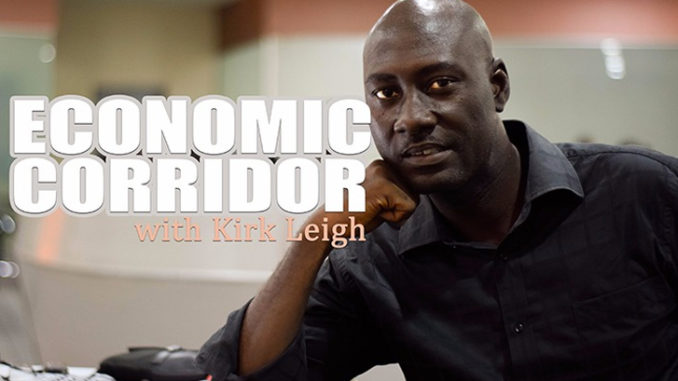
At the just concluded IMF/World Bank Meeting in Bali Indonesia, the take away for Nigeria’s delegates is that Nigeria’s economy is not doing well and government must take control before it slips into recession again with untoward consequences for the players. The monetary and fiscal sides of government must work in concert to make sure this happens.
In warning on the economy, the IMF downgraded Nigeria’s 2018 growth forecast to 1.9 percent from 2.1 percent. This is as the multilateral noted that Nigeria, Angola and South Africa are the countries holding back the continent from robust growth. This warning cannot be coming at a better time. Recall that the central bank had warned just two weeks earlier that the fragile economy may slip back to recession if managers on the fiscal side fail to live up to the challenges at hand. The CBN warned that the spectre of a recession would be inevitable if government fails to implement the 2018 budget, create employment and increase minimum wage.
Apart from the forewarning by these two institutions, we note that major economic indices are on the decline to indicate that there could be trouble ahead. Beginning with the capital market, which is a leading indicator, we note that the market has declined almost 40 percent since January mainly due to political risk as portfolio investors dump Nigeria assets for safer havens. It is long held by financial market experts that large decreases in stock prices are reflective of impending recession, whereas large increases in stock prices suggest future economic growth. The fall in the market doesn’t appear to end sometime soon.
Another leading indicator, manufacturers PMI although not in troubled territory, declined in September and so did the Services PMI. Capacity utilisation, which is the extent to which country uses its installed productive capacity, has seen little change since the bounce in July and indicates stagnation in the county’s production capacity. Another scary indicator is the debt to GDP ratio which has ballooned to 21.3 percent, up from 13.2 percent in 2015. This is making Nigeria’s debt instruments riskier with rises in yields now at above 15 percent.
The indicators thus far point to a likely decline in year on year GDP, down from the current 1.5 already described as weak and may trigger a recession .So far, the economy is saved a bloody nose by the continued rise of oil prices in the international market despite a little slip with the announcement that Iran was getting into the oil market. We can only imagine the ghastly consequences of a drastic drop in the black gold.
To avert the looming danger the government is encouraged to key in to suggestions earlier advanced by IMF at the spring meeting in Washington DC: Grow the non oil, non agric sector; coherent policy actions and a growth-friendly fiscal adjustment to reduce the ratio of interest payments to revenue, to a more sustainable level and prioritise social and infrastructure spending. Others are, an automatic fuel price setting mechanism (fuel subsidy removal), sound cash and debt management and improved transparency in the oil sector.
Beyond the above, government is advised to increase monitoring of the fiscal position of state and local governments and substantially scaled-up social safety nets; initiate structural reforms that will lay the foundation for a diversified private sector led economy; building on recent improvements in the business environment; implementing the power sector recovery plan and investing in infrastructure .
That said we want to add, as we had done previously that managers of the economy especially on the fiscal side to not let the economy slip. The 2018 budget must be fully implemented and work must begin on the 2019 budget. They must grow the real sector that has been on the decline since 2015. They should completely arrest the herders/farmers crisis because of its potential to cause food shortage and harm the economy.
We urge government to cut down on the number of loans being sought from foreign governments; this as we encourage them to strengthen the private sector as well as Development Finance Institutions (DFIs) to finance the real sector to help consolidate for future of growth. It is the way to go to put the economy on a growth trajectory.
END

Be the first to comment